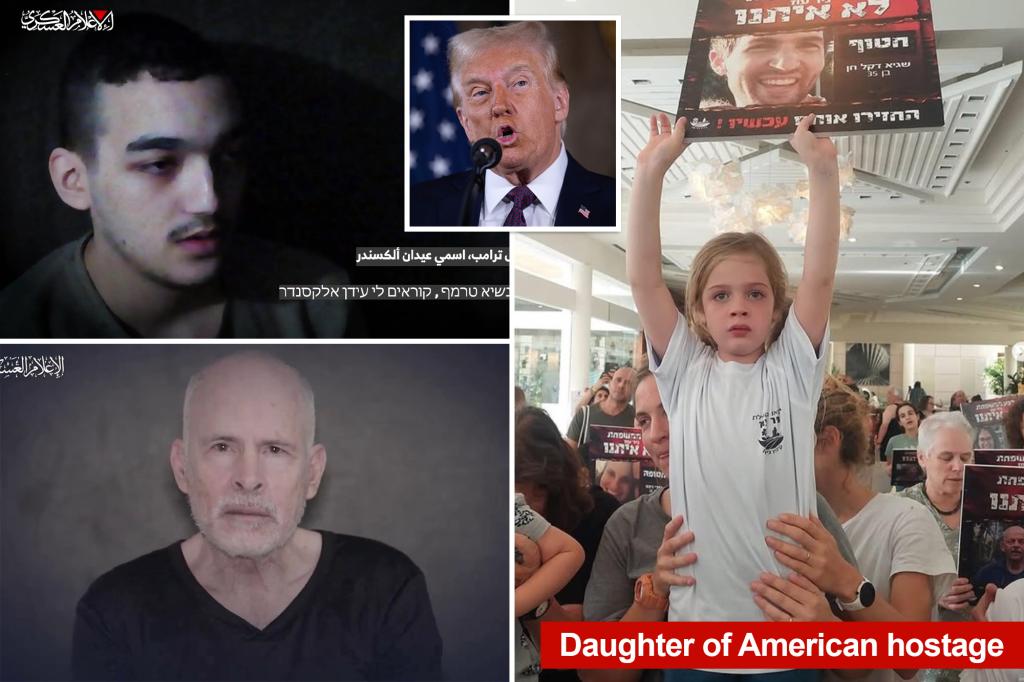Paragraph 1: The Hostage Crisis and Trump’s Ultimatum
President-elect Donald Trump has issued a stark warning to Hamas regarding the 101 hostages, including seven Americans, currently held captive. Trump’s ultimatum demands the release of all hostages before his inauguration on January 20th, threatening unspecified but severe consequences if Hamas fails to comply. The gravity of the situation is underscored by reports suggesting that at least three of the American hostages may already be deceased. Trump’s emphatic declaration that "all hell will break out" if the hostages are not released prior to his taking office highlights the urgency and seriousness with which he views the situation. This firm stance signals a potential shift in US policy towards Hamas and a more assertive approach to hostage negotiations.
Paragraph 2: Diplomatic Efforts and the Role of Steve Witkoff
As the inauguration date looms, frantic diplomatic efforts are underway involving both the incoming Trump administration and the outgoing Biden administration. Steve Witkoff, Trump’s designated special envoy to the Middle East, has been at the forefront of these negotiations. Witkoff has announced some progress towards a potential hostage release, though he refrained from disclosing details about the factors hindering a final agreement. His planned trip to Doha, Qatar, a known hub for such negotiations, signifies the intensification of efforts to secure the hostages’ freedom. Trump’s confidence in Witkoff’s negotiating abilities is evident in his description of him as a "great negotiator," further emphasizing the importance placed on resolving the hostage crisis swiftly.
Paragraph 3: Trump’s Interactions and Reflections on Past Hostage Situations
Underscoring the human dimension of the crisis, Trump has shared his interactions with the families of the American hostages, providing a glimpse into the emotional toll of their captivity. He has also highlighted the brutality of Hamas, further strengthening his resolve to secure their release. Trump’s reference to the release of American hostages by Iran on the day of Ronald Reagan’s inauguration in 1981 suggests a desire to emulate this historical precedent. This parallel reveals Trump’s aspiration to begin his presidency with a decisive act of strength and a commitment to protecting American citizens abroad.
Paragraph 4: The Biden Administration’s Efforts and Challenges
Secretary of State Antony Blinken has reaffirmed the Biden administration’s commitment to resolving the hostage crisis within the remaining two weeks of their term. This underscores the shared urgency between the incoming and outgoing administrations, despite their differing political affiliations. Blinken has, however, acknowledged the complexities of the situation, citing pressure from progressive groups critical of Israel as a complicating factor in the negotiations. This admission highlights the delicate balance the administration must strike between domestic political considerations and the imperative to secure the hostages’ freedom.
Paragraph 5: Trump’s Appointments and Previous Statements
Trump’s selection of staunch Israel supporters for key positions in his administration, including Elise Stefanik as the US Ambassador to the United Nations and Mike Huckabee as the US Ambassador to Israel, offers further insight into his approach to the Middle East. These appointments suggest a potential hardening of US policy towards Hamas and a closer alignment with Israel’s security concerns. Trump’s repeated, forceful statements about the potential repercussions for Hamas if the hostages are not released, including his assertion that "there will be hell to pay," reinforce the seriousness of his ultimatum and his commitment to a decisive response.
Paragraph 6: The Stakes and Potential Implications
The hostage crisis presents a significant challenge for both the outgoing Biden administration and the incoming Trump administration. The urgency of the situation, compounded by the reported deaths of some hostages, demands immediate and effective action. The outcome of these negotiations will have far-reaching implications for US foreign policy in the Middle East, particularly regarding the relationship with Hamas and the broader Israeli-Palestinian conflict. Trump’s uncompromising stance and strong rhetoric signal a potentially significant shift in US policy, raising questions about the future direction of diplomacy and the potential for escalated tensions in the region. The success or failure of the negotiations will undoubtedly shape the early days of Trump’s presidency and set the tone for his administration’s approach to international crises.

